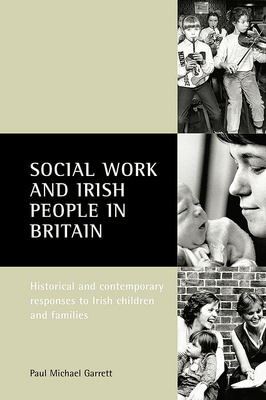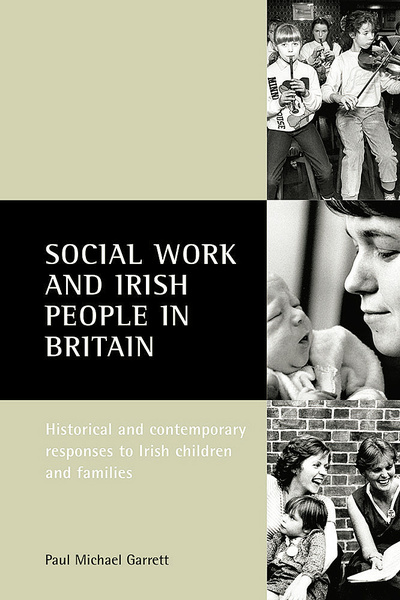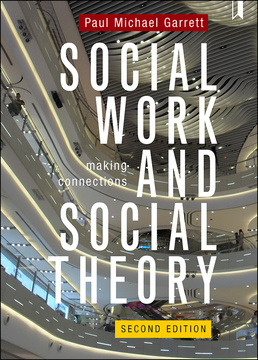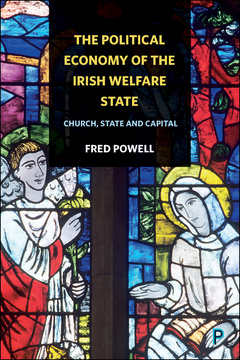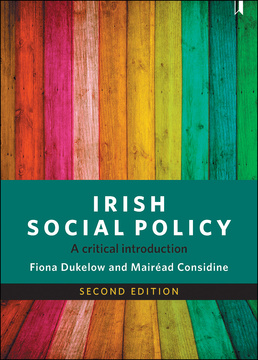Social work and Irish people in Britain
Historical and contemporary responses to Irish children and families
By Paul Michael Garrett
Published
Jun 23, 2004Page count
192 pagesISBN
978-1861344113Dimensions
234 x 156 mmImprint
Policy PressPublished
Jun 23, 2004Page count
192 pagesISBN
978-1861344120Dimensions
234 x 156 mmImprint
Policy PressDominant social work and social care discourses on 'race' and ethnicity often fail to incorporate an Irish dimension. This book challenges this omission and provides new insights into how social work has engaged with Irish children and their families, historically and to the present day. The book provides the first detailed exploration social work with Irish children and families in Britain; examines archival materials to illuminate historical patterns of engagement; provides an account of how social services departments in England and Wales are currently responding to the needs of Irish children and families; incorporates the views of Irish social workers and acts as a timely intervention in the debate on social work's 'modernisation' agenda. The book will be valuable to social workers, social work educators and students. Its key themes will also fascinate those interested in 'race' and ethnicity in Britain in the early 21st century.
"This book is an excellent resource which I highly recommend to practitioners, students and educators in the field of social work/care fields. It offers invaluable insights and perspectives on social work with the largest ethnic minority in Britain and makes an essential contribution to our continuing understanding of anti-oppressive practice. It should be recommended reading on social work courses and accessible on the bookshelves of practice agencies. Whilst the content focuses on the British experience this book also provides useful information and insights for practitioners
and educators internationally." Social Work Education
"I look forward to reading anything by Paul Michael Garrett because he writes with attitude. His insistent, slightly angry but always well-informed arguments draw attention to issues that the rest of us are content to skim over - in this case the failure of social work to engage in an anti-oppressive fashion with the Irish experience in Britain." Community Care
"... original in its sources, methods and ideas. The style and organisation are easy to understand and its conclusions provide valuable insights and summaries. Paul Michael Garrett has provided a powerful case to the social work profession and society in general for more awareness of the perceptions of Irish people and some restructuring of services they receive." Adoption & Fostering
"... an extremely interesting and useful book for anyone involved in planning or delivering family services to people from an Irish background... should be essential reading for those providing social services to families with Irish roots." Journal of Social Policy
"...an important contribution to the literature." European Journal of Social Work
"... a fascinating insight into the experience of Irish service users in Britain, both past and present. It is a text that many British social workers will - or should - be recommended to read." Caroline Skehill, School of Social Work, Queen's University of Belfast
Paul Michael Garrett is a Senior Lecturer in the School of Sociology and Social Policy at the University of Nottingham. His work has appeared in a number of academic journals. His most recent book was Remaking social work with children and families (Routledge, 2003). He is also the Adviser on Social Services to the All-Party Irish in Britain Parliamentary Group.
Introduction; Fleeing Ireland: social exclusion and the flight of Irish 'unmarried mothers' to England in the 1950s and 1960s; Responses in Britain to the PFIs: the repatriation of 'unmarried mothers' to Ireland in the 1950s and 1960s; The 'daring experiment': London County Council and the discharge from care of children to Ireland in the 1950s and 1960s; 'Race', ethnicity and Irish 'invisibility'; Social services departments and Irish children and families in the early 21st century; 'Maximising things for your community': the views of social workers; Conclusion.







